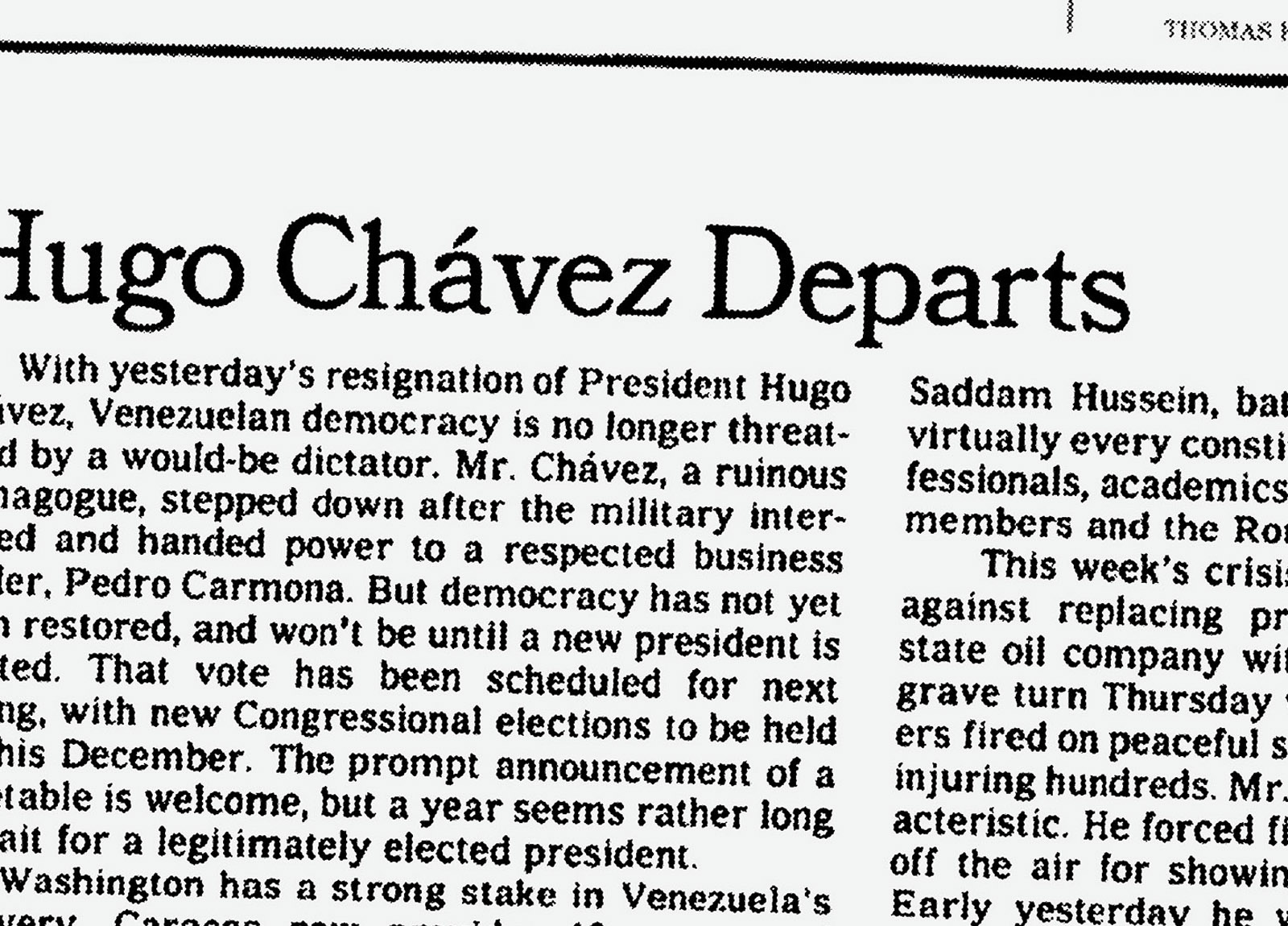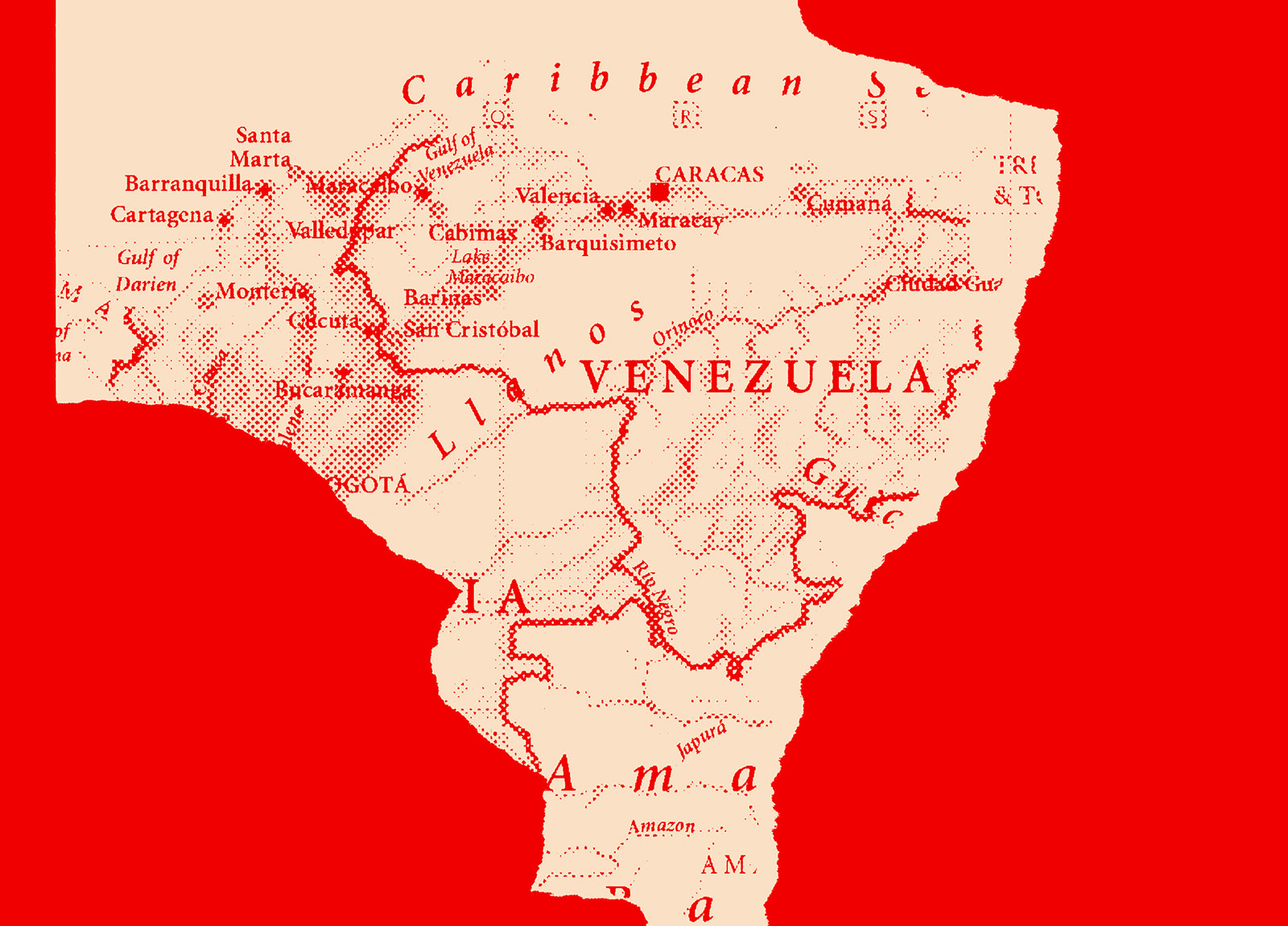In January 2019, Venezuelan opposition leader Juan Guaidó proclaimed himself president, citing the supposedly fraudulent reelection of Nicolás Maduro and an ailing Venezuelan economy. President Donald Trump rushed to officially recognize Guaidó as Venezuela’s leader, a position also taken in The New York Times’ piece about Guaidó, who was depicted as a “fresh-faced leader from humble origins” and “the opposition’s last, best chance to revive itself.”
Since Hugo Chávez’s election in 1998, The Times has aligned with U.S. foreign policy and treated Venezuela’s socialist government as an enemy. In 2002, the Times editorial board openly supported a U.S.-backed coup attempt against Chávez.
In 2019, The Times downplayed the catastrophic effect of U.S. sanctions on Venezuelan life, ignored the history of U.S. attempts to topple Venezuela’s government, endorsed the overthrow of Maduro and portrayed Guaidó as a Venezuelan folk hero.
Outside a few passing mentions that failed to note their deleterious effects, The Times generally ignored the U.S. sanctions regime that had crippled the Venezuelan economy since 2017. By 2019, Trump’s deadly economic escalation had produced an astonishing 31% spike in general mortality. While Times reporters occasionally quoted Maduro, who argued that U.S. sanctions were central to Venezuela’s economic collapse, the publication did not seriously investigate this claim.
In one emblematic front-page article, The Times wrote that “citizens of what was once one of the region’s wealthiest nations, endowed with plentiful oil, have starved to death and died from preventable diseases” and that they “have struggled to find food and medicine while contending with water shortages and rampant crime.” But the role that U.S. sanctions played in spurring this economic catastrophe was invisibilized.

In another article purporting to be an unbiased breakdown of the crisis, The Times neglected to contextualize the suffering of Venezuelans — including hospitals “collapsing under chronic shortages” and “hunger…killing Venezuelan children” — as even partly due to sanctions. Instead, The Times again placed the blame on Maduro and Chavez, under whom they allege “Venezuela’s economy spiraled into mismanagement, corruption and backbreaking debt.”
At the height of Guaidómania in January 2019, Times reporters gave favorable front-page treatment to Trump’s new oil sanctions, while somehow managing not to mention the preexisting sanctions that had helped to provoke the political crisis in the first place.
The Times deployed a matter-of-fact tone as it reported on U.S. “support for Mr. Guaidó’s effort to oust Mr. Maduro and set up a transitional government.” At the same time, The Times framed U.S. thirst for regime change as a democratic pursuit while failing to report on then National Security Adviser John Bolton’s incendiary comments, which demonstrated a less benevolent motivation for supporting Guaidó.
“It will make a big difference to the United States economically if we could have American oil companies really invest in and produce the oil capabilities in Venezuela,” said Bolton.
The Times editorial board followed suit in a January editorial, as they ignored the brutal sanctions regime and echoed their stance on the 2002 coup attempt, using the excuse of a “tense moment” to call for an end to Maduro’s “intolerable” “misrule.”


